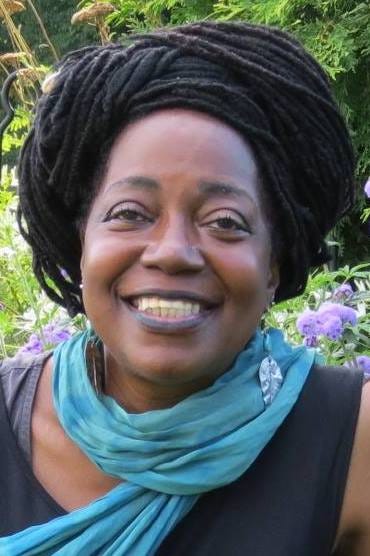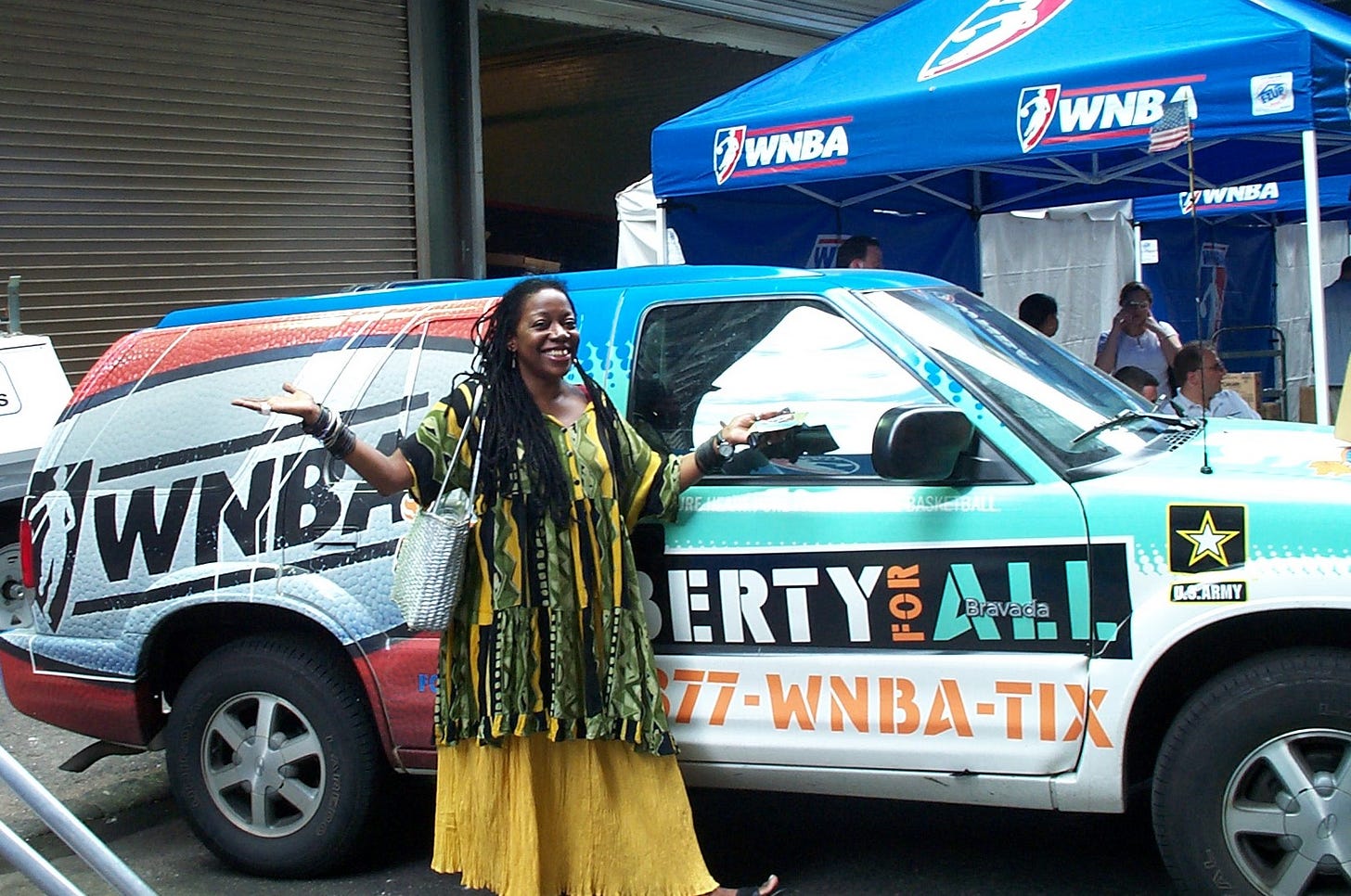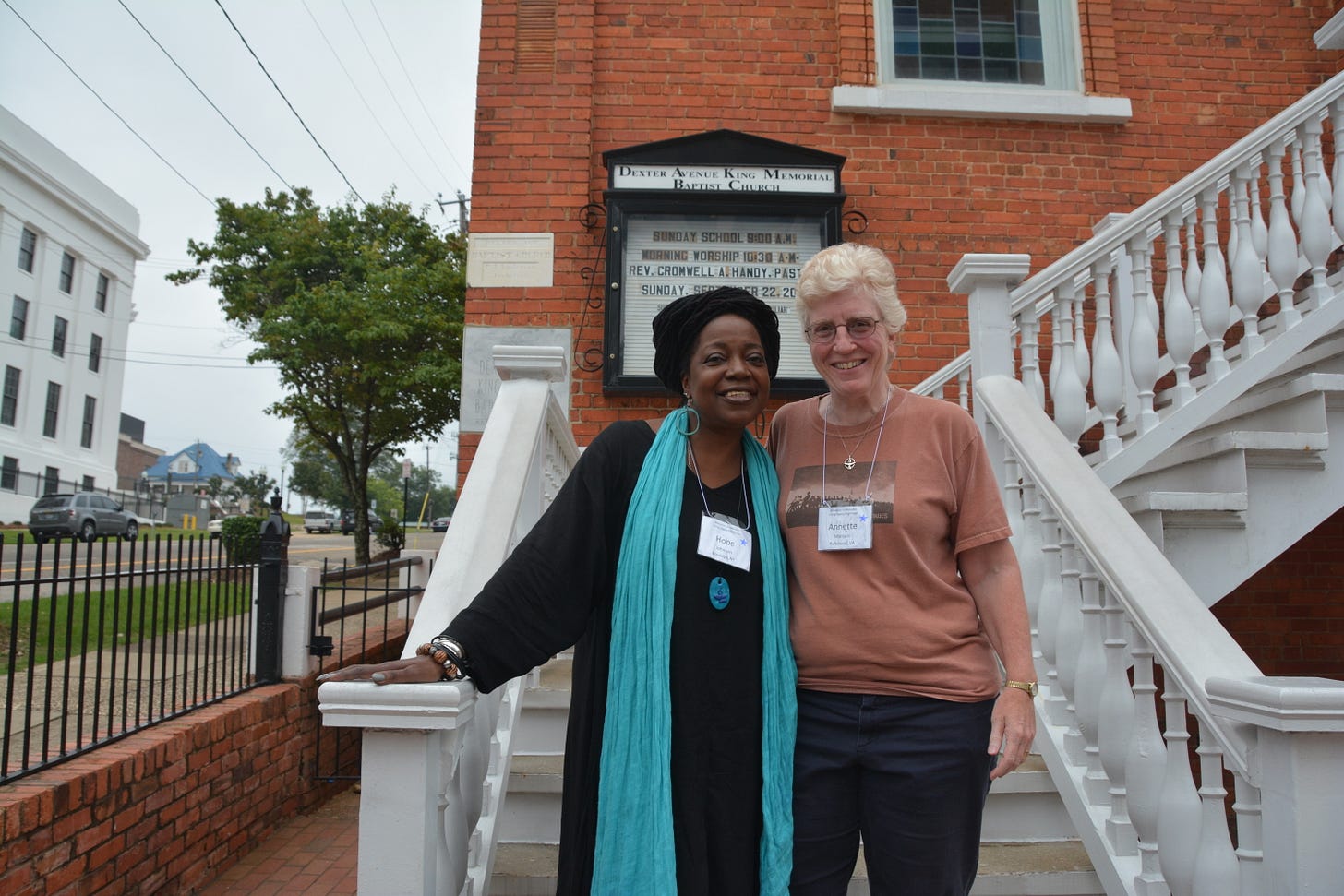Speaking the truth in love
Rev. Dr. Hope Johnson (195x-2020) challenged me to examine the space I took up in the world.
The year: 1993. The place: the Unitarian Universalist Association General Assembly (GA) in Charlotte, North Carolina. Attending my first of what to this day would become an almost annual pilgrimage, I had no idea what to expect.
As I perused the program, I saw a listing for something called the Thomas Jefferson Birthday Ball. “Dress in customs of the period,” the description said. I immediately knew this event wasn’t for me. Not only did I not bring suitable attire, but dressing up did not appeal to me, especially in women’s 18th century costumes that to me would feel like dressing in drag. I thought no more about it. That is, until a woman got up in front of the plenary session and made a statement opposing the ball.
Struck by her bright, flowing clothes, black coffee skin, and long locks flowing down her back, I found myself mesmerized. In a deep voice peppered with a light Jamaican accent, I heard:
We, members of the African American Unitarian Universalist Ministers (AAUUM), and our many friends of differing racial and cultural backgrounds are outraged by, and strenuously protest the inclusion of events described as "The Most Famous Unitarian in the World" and the "Thomas Jefferson Birthday Ball" in this UUA General Assembly Program…
Please consider these elements: 'The Most Famous Unitarian in the world" as described for one of the GA events was:
An unrepentant slave holder;
Advocated the extermination of indigenous peoples in America;
Had an enslaved consort, Sally Hemings, who bore his children;
Refused to set free his slaves, many of whom were his own children…
Is his lifestyle one that Unitarian Universalists should really celebrate?
Must African Americans attend such events in rags and chains?...
Whoa!
That served as my introduction to the Rev. Hope Johnson—a stunning presence, a powerful voice, and a woman not afraid to speak her truth. Although Hope’s words did not convince the organizers to cancel the ball, most people who attended did not dress in costumes, and costumed or not, they all had to pass through a drum circle organized by people of color at the bottom of the escalator to get to the ballroom. The message was clear.
By 2008, when Hope, her twin sister Janice Marie, and I traveled together on the Southern Civil Rights Tour, we had had many opportunities to get to know each other. Gripped by the compelling stories we heard on the tour, the three of us challenged the Rev. Dr. Gordon Gibson and his wife Judy Gibson to take one more tour to teach us how to lead it so that this important work could continue. The Living Legacy Project, now fifteen years old, developed from that moment.
Raised as the daughter of an ambassador, Hope grew up around the world and lived her life as a connector, organizer, and peacemaker. For some of the Living Legacy Pilgrimages we organized, Hope recruited 50% or more of the people who registered. Her enthusiasm for the experience captured peoples’ attention and, when she invited them to “get on the bus,” many had a hard time saying no. It was on one of those pilgrimages that Hope taught me an invaluable lesson, one as impactful on me as her Thomas Jefferson speech was on an entire community.
Our four-person leadership team, which on this trip consisted of three people of color and me—had agreed that we would alternate leadership duties on the bus each day. The leader would orient the travelers to the day, offer readings, invite songs by our song leader, and share information about our upcoming stops. The rest of the team could sit back, chat with the participants, and provide support as needed.
My role, however, was different—at least I saw it that way. I handled logistics, i.e., meals, lodging, museum tickets, etc., for the entire trip, so I often had information to share about those things--information I held tightly, obstinately, telling myself I didn’t want to burden the other leaders with it.
Hope’s day started out as planned. She led, and I sat in the back talking with other passengers and taking it easy. As we got close to lunch, however, I moved up and sat in an open seat near the front.
“Can I take the mic from a minute, Hope?” I asked. “I want to share information about our lunch plans.”
“Sure, Annette. Thank you for doing that,” Hope replied, graciously, handing me the mic.
And so, I took the mic.
The problem was that when we reboarded after lunch, I again sat in the seat near the front and immediately grabbed the microphone—and then kept it—for the remainder of the afternoon! I shared all the information Hope had planned to share, told the stories she had researched and planned to tell, and made it difficult for her to regain control of the mic.
I had no awareness about what I was doing. I thought I was being helpful. And Hope was too polite to confront me in front of everyone. However, she did not let me get away with it. That evening after all the participants had gone to their rooms and the leaders settled in for a glass of wine to plan the next day, Hope said her piece.
“You know what you did, right?” She asked, looking directly at me with her piercing black eyes. “You know that by taking and then keeping the microphone, you took my power as a Black woman away today, right?” She paused but didn’t take her eyes off me, her anger penetrating, and her disappointment profound.
“Wh…What?” I stumbled. “I did? I didn’t mean to,” I replied weakly, looking down into my wine glass. “I’m sorry.”
“It’s not good enough to be sorry,” Hope said. “You have to understand that what you did was an expression of white supremacist culture. You took my voice away.”
I had no clue what I had done.
Hope did not forgive me that evening. In fact, I’m not sure she ever forgave me—or if it was even appropriate for her to do so. I never feared that I had lost her love though. Everything she did and said came from a place of love.
After several more conversations following the trip, some more heated than others, and additional opportunities to work and be together, she came to trust me again. And, through this process, I learned a deep lesson about how to take up less space as a white person who’s used to being charge, especially when working on a multicultural team.
Hope died much too soon—from damage she sustained in the wake of the September 11, 2001, attack on the World Trade Center. As a minister serving a congregation in Brooklyn, Hope saw it as her duty to provide pastoral and other care to the Manhattan Muslim community maligned for their faith because of the attacks. She rarely talked about what she did during that time, but the toxins she inhaled permanently damaged her lungs. She struggled with breathing over the next nineteen years until she eventually succumbed to her injuries in 2020.
I will always cherish Hope as a woman who spoke her truth in love, and because of her, before jumping into a conversation, especially when people of color are in the room, I do my best to take a step back and first consider the impact of my actions.
Next post:






